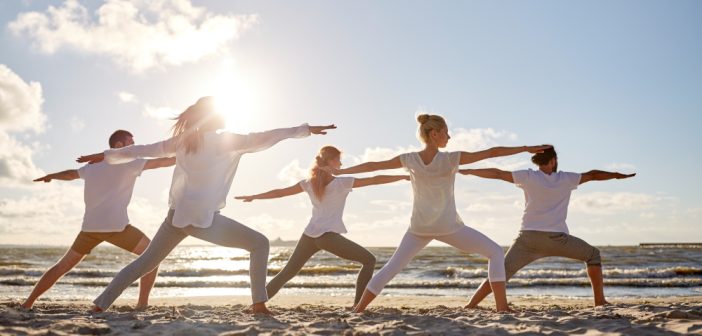Whether you’re a family-fun vacationer or a bucket-list backpacker, staying healthy and taking care of yourself while traveling is your ticket to making the most of your precious days off.
Since physical, mental, and emotional health are the key elements that affect your overall well-being, here are some useful tools and techniques to ensure your trip is smooth sailing.
The Body Is Your Vessel
Taking care of your physical body must be your first priority. Eat, sleep and move; compromising on any of these is like a ship leaving the harbor with no fuel.
Though it may be tempting to figure food out on the fly, the importance of eating healthy and balanced meals does not diminish on holiday. Based on your itinerary and budget, evaluate your destination’s dining options ahead of time, and refer to resources like WebMD’s Nourish blog on which low-calorie snacks can help you stick to your diet, even while you’re flying.
Smart nutrition includes strategically sleeping, especially when traveling through different time zones. Medical director of Johns Hopkins Center for Sleep Charlene Gamaldo recommends adjusting your bedtime by one-hour increments for the three days before you travel and syncing your sleep schedule up with local time once you land. Establishing that initial momentum will help you keep up with your sleep schedule consistently for the rest of the trip.
Movement is imperative to gaming your body’s internal clock. Gamaldo suggests kicking the day off with a warm shower and breaking a sweat outdoors—both sure-fire methods to increase your core body temperature and trigger your circadian rhythm. Your body acts as your vessel to move forward, so fuel up with good food and well-timed rest!
The Mind Is Your Compass
While being physically healthy keeps you up and moving, your mental health determines which direction to move in. When it comes to achieving mental clarity, creating a solid plan is a simple, effective approach to eliminating any travel anxieties you may have and boosts your conviction in the decisions you make when you leave home. Good planning does not necessarily mean you need to meticulously break your itinerary down in a spreadsheet—a good plan is simply well thought-out.
Visualization can be a powerful tool to run through what a realistic day might look like. While scheduling activities back-to-back may seem like a good idea, the best way to get the bang for your buck is to incorporate more periods of rest than you would normally take.
A good way to avoid burnout and truly enjoy your plans is to ensure your day is balanced with different kinds of activities. For example, a vacation on a tropical island can include much more than just lazing at the beach—consider engaging in water sports, visiting historical locations, exploring local towns with less tourism, and participating in cultural entertainment. Your mind is your compass, so thoughtfully mapping your plan out will keep you focused in the future.
You Are the Captain
While mental health involves processing all the information we encounter, emotional health reflects the feelings provoked by that information. As Eddins Counseling Group aptly describes in “Emotional Health vs. Mental Health: The Real Difference,” you can “envision mental health as the ocean, with emotional health being the waves.”
When traveling, you will be exposed to a variety of new environmental stimuli, so balancing your thoughts and emotions is essential to keeping your head above the water. You can monitor your emotional health by being aware of your emotions, accepting your feelings, and managing them appropriately.
Proper emotional regulation helps you maintain healthy relationships with others, which can be critical on vacations with family or friends. Hasty emotion-based reactions can quickly devolve into deal-breaking disputes and ruin the overall atmosphere of your trip. Refining your thoughts, feelings, and behavior will fortify your ability to navigate murky social waters and avoid hitting an iceberg that could sink your trip entirely.
Reckon with the Roundtrip
Taking care of yourself and staying healthy while traveling or on vacation can seem intimidating, but you don’t have to be a fitness freak or Type A person to achieve this. Taking the time to understand what you truly want to take away from your trip will make it easier to adopt the strategies relevant to you and your next destination. View your trip as a limited time to experiment with new practices that may translate into your day-to-day life later. Consider how you want to feel at the end of your vacation or trip—relaxed, energized, or inspired—and craft your itinerary to support those intentions. As you travel, you can use that vision as an incentive to stick with your goals.
Taking care of yourself does not stop at keeping your body fit. Your physical, mental, and emotional health are all interconnected—one cannot function without the others. With a strong body and sharp mind, you’re ready to successfully captain your ship along your chartered course. This is the vacation when you’ll finally have the time and energy to channel your wanderlust and enjoy the exotic vacation pictures that flood your timeline!
A version of this article was published by The Daily Herald. It has been republished here with permission.




